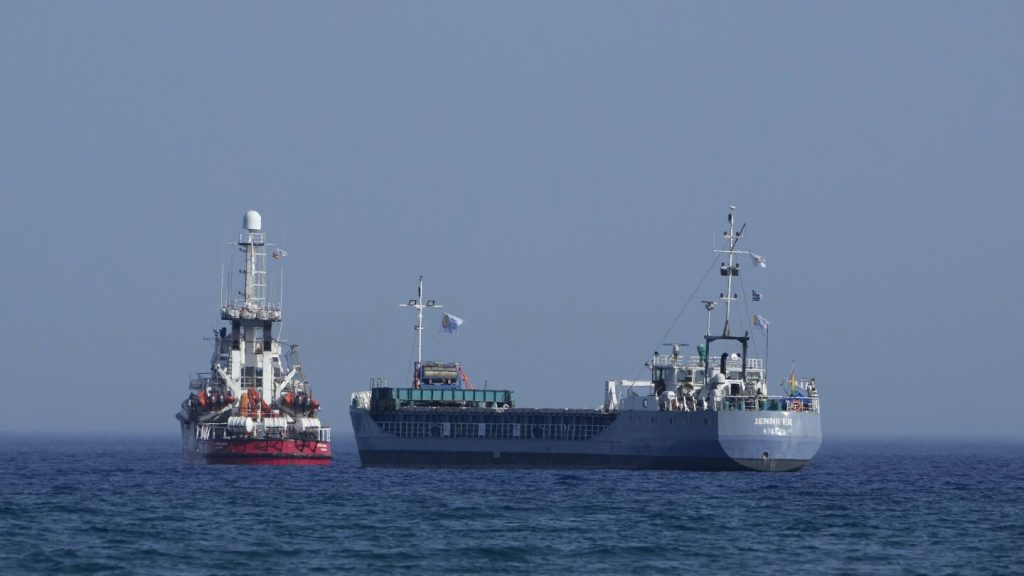A three-ship convoy carrying 400 tons of food and supplies for Gaza left Cyprus on Saturday. The World Central Kitchen charity said the vessels were loaded with enough food to prepare over 1 million meals, including staples like rice, pasta, and canned vegetables. Concerns about hunger in Gaza are rising, with the United Nations warning that famine could occur in the devastated region as early as this month. Deliveries by sea and air are not enough, and humanitarian officials are calling for Israel to allow more aid to be delivered by road. The top U.N. court has ordered Israel to open more land crossings to address the crisis.
Truce negotiations between Israel and Hamas are set to resume on Sunday, according to Egypt’s state-run Al Qahera TV. The war between the two sides began after Hamas militants stormed southern Israel, resulting in 1,200 deaths, mostly civilians, and 250 hostages being taken. Some Israelis, including the relatives of hostages, have been rallying to show frustration with Prime Minister Benjamin Netanyahu’s government, calling for his resignation. The ongoing conflict has resulted in the destruction of critical infrastructure in Gaza, displacing over 80% of the population. Hospitals, schools, homes, roads, sewage systems, and the electrical grid have all been severely impacted.
In Gaza, mothers in the Muwasi tent camp expressed concerns about their children losing memories of life before the war. Children in the camp are drawing images of tanks, missiles, and planes instead of more pleasant subjects. The Health Ministry in Gaza reported that over 32,000 Palestinians have been killed, with a majority of the casualties being women and children. Israel has blamed Hamas for civilian casualties, as the group operates in residential areas. The Israeli military confirmed shooting and killing two Palestinians on Gaza’s beach, responding to a video that showed their bodies being pushed into the sand by a bulldozer.
Despite the United Nations Security Council’s call for a cease-fire, Israel’s military continued to strike targets in Gaza. The U.S. military also participated in delivering aid to Gaza, releasing over 100,000 pounds of aid in a recent airdrop. The United States has welcomed the formation of a new Palestinian autonomy government, viewing it as a step towards political reform. The new government, headed by Palestinian President Mahmoud Abbas, includes U.S.-educated economist Mohammad Mustafa as prime minister. However, Israel and Hamas reject the idea of the Palestinian Authority administering Gaza due to their little popular support or legitimacy among Palestinians.
The conflict has extended beyond Gaza, with over 400 Palestinians killed by Israeli forces or settlers in the West Bank and east Jerusalem. Israel has indicated that it will maintain security control over Gaza and partner with Palestinians not affiliated with the Palestinian Authority or Hamas. However, it remains unclear who would be willing to take on this role in Gaza. Hamas has warned against cooperating with Israel to govern Gaza, threatening anyone who does so as a collaborator. The group has called for all Palestinian factions to form a power-sharing government ahead of national elections, which have not been held in 18 years.


